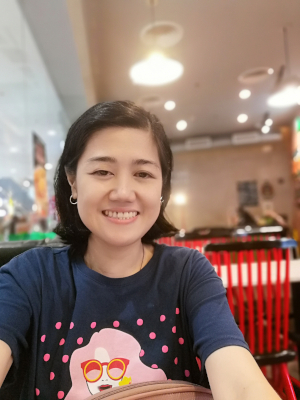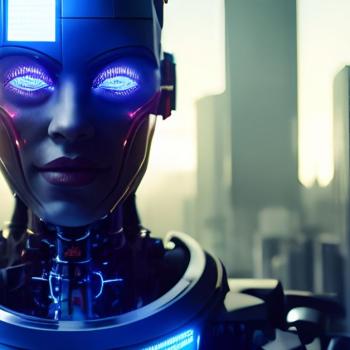
Think about the way people currently search for information on the internet
They usually go to a search engine like Google and then type the related keywords to their inquiry. If they have questions about the Catholic faith, they can write something like, “What makes the Catholic Church different from other religions?”
They would then be given a list of the various websites with possible answers to their question. Using their intelligence and preferences, they would select some websites from which they could get the information they need.
Compare this when Artificial Intelligence would be the more common way of searching for information online.
Instead of making a query over a search engine, people would directly ask questions from an AI platform such as Bard or ChatGPT. There’s even an AI within the Snapchat app which users can easily ask in the form of a chat on their mobile phone.
They would no longer need to scan various websites and decide for themselves which among those may have the most credible answer. They would instead instinctively trust the answers that the AI platform would offer them.
The question now is this: “Can an AI provide a satisfactory answer to matters of spirituality and faith?”
Of course, one can say that the person can ask the AI to provide the sources or supporting write-ups for its answers. But that would be one step away from the easy task of merely asking the AI something. And the most likely scenario would be a new generation of people well-versed in using AI and having unquestionable faith in this kind of technology.
Faith and adapting to new technological advancements
The Catholic Church has successfully adapted in the face of various developments in science and technology.
Examples of these are the advancements in the use of television sets and radio when it comes to communication. Then came the modern computers with websites, search engines and social media channels.
The Church was able to use these technologies to preach the Gospel in various places across the globe, reaching people who would not have otherwise heard about Jesus Christ.
But in the face of this newest challenge concerning artificial intelligence, how is the Church going to adapt?
Although we must not be afraid to face the many changes and challenges of our secular world, we must also not fall into complacency. It would be negligence on our part if we assume that AI would not be a threat to faith and we should just be passive in the face of its rapid development.
Here are just some of the things we can do so that we can continue to preach the faith in a world dominated by artificial intelligence:
1. Participation in talks about the ethical use of AI
Just because we can’t stop it from happening doesn’t mean we have no means to influence the outcome of this technology. We should participate the best way we can to ensure that the systems and processes in place have integrity and that the AI platforms are not subject to manipulation or to biased algorithms.
They should also be used without neglecting our privacy and basic human rights.
2. Actively helping the formation of young ones
The youth should not be left on their own in the face of these technological developments. Schools, parents and immediate family members have the responsibility to educate young people about the faith. They should also learn how to use technologies with the right mindset.
Artificial intelligence should be clearly seen as a tool to assist people, not an authority when it comes to truth, especially in matters of faith.
3. Increased pastoral care
More and more people may be isolated from a supportive community. To avoid too much reliance on technology in the face of isolation, the Church must increase its awareness of such problems. They should offer the help and support needed by people who are most vulnerable and at risk of losing the faith.
4. Emphasis on face-to-face interactions
Human connection is what helps people know that they belong and that they are not alone in their day-to-day journey.
Instead of over-reliance on computer systems, the Church must emphasize the value of human support. It is through this means that spiritual growth can also be nourished and protected.
5. Using technology to advance evangelization
The more advanced the technological developments we see, the more we should make our presence known using those platforms.
Write informative articles explaining the faith. Share interesting facts about Catholicism via social media. Speak to a wide audience through your videos and podcasts.
In this way, the Catholic faith would be made available to more people. And if the internet is one source of information AIs use, it needs to see the prevalence of articles and other information about the faith. The lack thereof would only make the AI think that human beings have no other dimension to their lives other than the secular world.
Final thoughts
Jesus has left a very alarming question in the Bible when He asked:
“But when the Son of Man comes, will he find faith on earth?”- Luke 18:19 (NABRE)
I wonder what kind of world exists at the time when Jesus comes. Will it be much like the kind of world we live in today? Will it be the world inhabited by the future generation?
Let us make sure that we do everything in our power for the Good News to be preached to as many people as we could possibly reach.
You may also want to read “Can AIs Like ChatGPT Pose a Threat to the Catholic Faith?”
Jocelyn Soriano is the author of the book Defending My Catholic Faith.
“Always be ready to give an explanation to anyone who asks you for a reason for your hope.” – 1 Peter 3:15 (NABRE)















